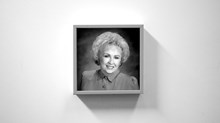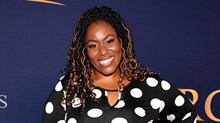Best-selling author Donald Miller will give a benediction Monday night at the Democratic National Convention. He replaces Relevant Magazine founder and CEO Cameron Strang, who decided not to give the benediction at the Democratic National Convention as previously planned.
Christianity Today featured Miller on its cover in June 2007, and his spirituality book Blue Like Jazz has sold more than one million copies.
"Don is one of the top names among young evangelicals," said Joshua DuBois, director of religious affairs for the Barack Obama campaign. "We didn't think he would do it. We're just ecstatic. I love Blue Like Jazz myself. I think it sends a huge signal that someone who's is helping to lead off the conventions is an evangelical of his calibre."
I spoke to Miller this morning.
Why did you choose to accept the invitation?
Somebody calls you and asks you to pray, you do.
You get three minutes to pray? Have you thought about what you're going to pray?
I've not written the prayer yet, but I really wanted to hone in on the theme of unity, even unity between Republicans and Democrats. In the convention, as we highlight our differences that we wouldn't forget that we're unified, we have more in common than we don't. That's the focus of the prayer.
Cameron Strang was in that slot before and said that people perceived the prayer as showing favoritism. Are you worried you'll receive the same reactions?
I'm not. I'm a registered Democrat. While that's perceived as black or white, or hostile toward the Republican Party, I grew up in the Republican Party. I even attended as a kid the Republican National Convention when it was in Houston when Bush Sr. was running against Clinton. I changed parties about five years ago. I really felt like the Republican Party was taking advantage of the evangelical community by throwing us abortion and gay marriage, really not giving the heart of Christ more thought. I felt like it was the party of the extremely wealthy and they needed this conservative base in order to get a majority and so they pandered to us.
(The rest of the Q & A is posted after the jump.)
I felt used by the Republican Party in that sense. I started looking at the Democratic Party and looking at social issues that are affecting the world, seeing the presidency and Congress from a global perspectives. Even though many Democrats don't identify themselves as evangelicals, many of the precepts of the party, charitable foundation of the party did reflect what evangelicals are about, the sanctity of human life, the importance of really not leaving people behind. I don't think either party is the answer to the world's problems. I lean toward solutions the Democrats seem to favor.
Where do you stand on issues like abortion and gay marriage?
The issue of abortion is a very sensitive one and it's an important issue. I look at from a perspective of, what's the best that we can do. As we elect a Republican House and Senate, and as we elect Republican leadership in the executive branch, we see very little changes on that issue. We're electing someone who agrees with us on abortion, being sort of a tragedy in our country, and yet can't get anything done. It's kind of like saying, I want a pilot on my plane who feels this way about abortion, but he can't fly the plane. The executive branch doesn't have that much power, it has some power, but it doesn't have much power. You look at the reality of that and say, what can I do to defend the sanctity of all human life, including the living, and the marginalized and the oppressed and the poor? What can we do to better social conditions so that less women are put in situations where they feel like they need to have an abortion. What does looking at the issue holistically look like. I hope the Democrats will listen to those of us who lean toward pro-life and those changes can be made.
In terms of gay marriage, I see it as a constitutional issue. Until we become a theocracy, I think that judges should look at it from a constitutional issue. Whether I think homosexuality's wrong, personally? America is not God's country. It's not considered a Christian nation anymore. You have to look at everybody, not just Christians and say, what are the rights of these people based on this constitution. That's another difficult issue as well. I get a bit frustrated when the evangelical position is reduced to two issues. So many other issues are not a concern to us. What happened was, in my opinion, the Christian positions has been reduced in order to manipulate us. If we give them these two issues, we can do whatever we want.
I assume that means you support Barack Obama? What do you think he will do as president that would appeal to evangelicals?
This is one of the reasons I was attracted to obama and read his book and wanted to take him seriously as a candidate. If you look in the last eight years, we have lost our reputable standing among most nations. Certainly among many poor nations and Muslim nations, we're not very respected. There's a great deal of hostility against us. As we travel the world, America represents Christianity to the rest of the world. What we have is Christianity being represented by what is perceived as arrogance, bullying, an inability to negotiate peace, an inability to listen. People assume that Christianity is that way. You ask yourself, what sort of person might God rise up to heal the wounds that have been created by that kind of positioning in the world. You would think a very intelligent minority, who came not out of wealth, who's not only power position in Washington, D.C., a man who's more thoughtful in his answers and less bullyish, not as simple of a thinker, even as reality is not simple, a man who has spent part of his upbringing overseas and has connections with Kenya, that's the guy. A name like Barack Obama, you just kind of go, that would be the guy that God would choose to heal some of the wounds that we've caused in the world. That's what made me take him seriously. I read his book, listened to his speeches, asked myself some of those hard questions. When all the math was done, he edged out as a favorable as a favorable candidate for me.
Do you see yourself as a person who plans to be more involved in political activism?
I'm a writer. That's my calling. I'm not a pastor. I'm a believer. I write about spirituality. I have political opinions that may not have more worth than anybody else. In this instance, when someone calls and asks you to come and pray, I say yes. I'm a supporter of this candidate, and I think that's great. After I came out on a blog and expressed about the Bush administration, they invited me to the White House and had breakfast with the president's assistant. I enjoyed that and enjoyed them as people. When someone asks you to come, you come, and you have a conversation. I don't see this as an, "I'm against Republicans." That's not that kind of a move. This is about any believer who's called and asked to come and pray. No matter you're called to pray, you go.
Originally cross-posted at CT's politics blog.

Support Our Work
Subscribe to CT for less than $4.25/month


















